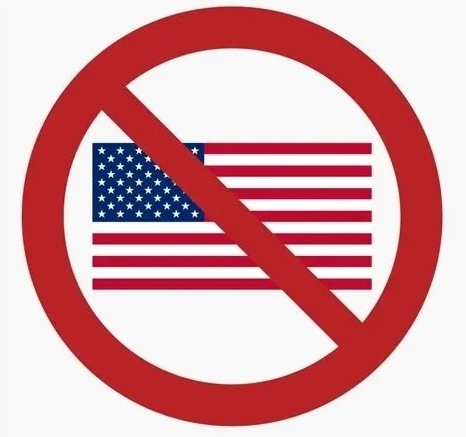The sheer brass-neckedness of the motherfuckers at Visa/MC/Amex to insist that they should be allowed to maintain a cartel charging 3% of every transaction that ever happens and that it’s not fair for central banks to offer a better way.
Incidentally, Brazil are far from unique; see G-Cash in Philippines, KHQR in Cambodia, PromptPay in Thailand, etc…
This is reminding me of back in … I want to say the '90s? … when American businesses first seriously started claiming that public health care was an unfair subsidy and started asking for tariffs.
American businesses genuinely think they have a right to sell to anybody without changing their business practices in the slightest; no adaptation to local circumstances or cultural norms or laws.
You’re not entitled to anyone’s business losers.
But Krugman’s forecast for such a system being introduced in the United States is a clear, “No. Or at least not for a long time …” due to two main obstacles: first, the power of the US financial sector, which "would never allow a public system to compete with its products (…) especially if the public system is superior”.
Now let’s hear from the soon to be tazered economists trumpet the beauty of free markets, deregulation and competition!
I would love to see the Bank of Canada do something similar, or some alternative to Mastercard, Visa, AMEX, and I think there are a few others that are Canadian to pop up.
Interac just needs to offer a credit version.
Excellent. I love to hear it.
I’ll be happy to switch to an alternative even if only a small proportion of retailer sign up. Let it grow!
The Office of the US Trade Representative (USTR) issued a statement in July announcing that it was investigating Brazil’s “unfair trading practices”, saying that Brazil “may harm the competitiveness of American companies” by favouring its own innovative, government-developed electronic payment services, although it did not mention Pix by name.
Krugman elucidates more.
My question is: what happens when another government hostile to their own people regain power? This should surely be an option in good times, and cash should be accepted everywhere.
How do you plan to enforce “cash should be accepted everywhere”? Are you going to pay the extra costs that handling cash brings to small businesses? Are you going to subsidize the massive fees that come paired with business accounts? (Hint: yes. It’s called “prices”.) Are you going to reimburse people who get robbed because physical cash is easy to steal and difficult to trace once stolen?
Every time I hear “should” I get genuinely curious about specifics that rarely, if ever, get supplied.
Credit Cards charge a fee. A vendor keeps more with cash. My business account did not have massive fees, it was pretty cheap. You just combine your cash deposits as you have so many bank deposits free and get charged a fee on overages. But bank doesn’t care if you deposit $100 or $9000 it counts as one of your capped deposits. People being robbed? Do you mean customers? That is not the business owners issue, that is a policing issue.
So you have to keep more money on premises until it’s worth depositing, thus increasing your exposure should you get robbed. (And what planet are you on where only customers get robbed, not stores? I want to live there.)
Handling cash has costs and risks both. A decent online payment system (by which I mean not credit cards since those are ludicrously expensive!) cuts back on both.
That’s why I asked the comment seemed to suggest customers.
Here in Canada we mostly use Interac, so accepting cash doesn’t mean all you get is cash. It just helps those that don’t want evert purchase tracked by places like the superstore and aggregated with other identifiers, or also helps homeless if they need to access something and have been setup with an interaction card.
Theres a push here to get cash accepted for billed services because they removed payment offices and only accept credit card or in some cases auto withdraw from your bank account. But because capitalism, some services were now charging a fee to take a payment via credit, and didn’t have a way to pay by cash.
I could go on, but I think you see where I’m going.
Think of the state of the USA right now. If cash is removed as a payment option then you become reliant on an electronic system hosted in the USA that can be “turned off” if war tensions rose. Reliance on electronics for critical basics and infrastructure are at risk during strife.
To me this sounds like an argument against a capitalist-focused implementation of payment systems. Ones in which banks design the system, run the system, and take fees from the system at their leisure. (Interac, for example, takes fees too.)
What you need is a humane cashless payment system. One that doesn’t lock out poor folk and charge ridiculous fees to both vendors and customers.
Where I live there are two major cashless payment systems and they are so ubiquitous that I haven’t seen cash used in anger in over a decade. Indeed the last time I had local cash in my hand at all was last summer when I needed it to go to Canada, getting it exchanged for CAD on entry and then having to suffer through carrying around wads of cash, having an increasingly heavy and bulgy coin bag, all so I could do things that here would be the quick scan of a QR code or even just waving my phone in the general vicinity of a terminal. (Note: I saw the cash, carried the cash, but didn’t use it here at all. I had it only to use in Canada. While still here the rest of my transactions were done the civilized way.)
It was quite the reverse culture shock, let me tell you.
I said that the systems here were ubiquitous. How ubiquitous you might ask? Street vendors with food carts use it. Small hole-in-the-wall restaurants and shops use them. Buskers use them: you just go up to the busker, look around for the QR code, scan it, and pay. No throwing change or bills.
So what are the fees like?
Most people will never see a fee. The one I use most, for example:
- I can withdraw up to the equivalent of about CA$4000 per month without a fee. (In local terms that’s a ludicrous amount of money. If you’ve got the kind of money where you can routinely do this, you’re well into “fuck off money” territory.) Anything over that limit is charged the onerous fee of 0.1%. (No, that’s not a typo.)
- Note: that’s withdraw. Paying for goods and services within the system are free, no cap.
- P2P transfers (end-user to end-user, not business) are capped to about that same CA$4000 per year and anything over that limit is charged that same 0.1%.
- On the commercial side, the transaction fee is typically around 0.6% per transaction.
It is interesting to note that I know all of these fees because they’re clearly explained on my payment provider’s terms of service and web site. (I also know all the fees from both sides on international transactions, but that’s out of scope since I don’t use this system for international purchases.) Now try to get a complete picture of the fees you pay when using Interac. Interac itself is refreshingly open about its fee structure, but getting the fee structure out of a bank without first opening an appropriate account and being a customer is an adventure and a half.
Nice. Personally I rarely touch money. Only to pay my old haircut guy, everything else is interac. And credit union with 0 fees
0-fee CUs are approaching unicorn status. I’m jealous! :D





